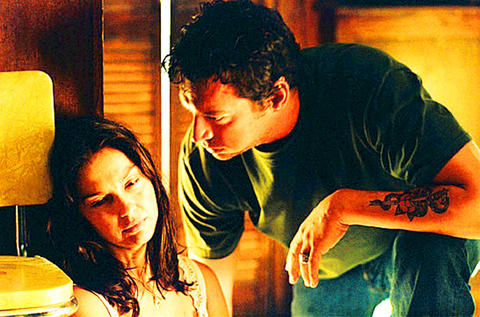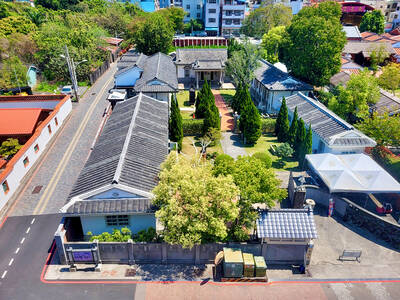There was a time when Ashley Judd seemed poised to take on, if not great roles, then at least interesting ones. Her 1993 breakthrough in the delicate drama Ruby in Paradise suggested that she could go far in films that called for vulnerable young women with steely underpinnings. Instead she strayed into mediocre thrillers (Kiss the Girls, High Crimes) that not even Morgan Freeman's dignified presence could salvage.
In Bug, an overwrought psychodrama directed by William Friedkin, Judd's acting continues to surpass her career choices. Playing a vaguely unstable barmaid living in a seedy Oklahoma motel, she convincingly juggles an abusive husband (a bulked-up Harry Connick Jr) and a newfound lover (Michael Shannon), who sees creepy-crawlies in the mattress and conspiracies everywhere.
Adapted by Tracy Letts from his 2004 play, Bug builds momentum from Michael Grady's agitated camera movements and Judd's increasingly distressed face. Friedkin has always been more fascinated by the evil inside our heads than the boogeyman outside, and he knows how to turn small spaces - like the bedroom in The Exorcist - into horrific theaters of war.

PHOTO: COURTESY OF LIONSGATE
The escalating hysteria and grisly set pieces of Bug may strain credulity, but Judd has never been more believable as a woman condemned to attract the wrong kind of man.
BUG
DIRECTED BY: William Friedkin
STARRING: Ashley Judd (Agnes White), Michael Shannon (Peter Evans), Lynn Collins (R.C.), Brian F. O'Byrne
(Dr Sweet), Harry Connick Jr (Jerry Goss)
RUNNING TIME: 102 MINUTES
TAIWAN RELEASE: TODAY

In the March 9 edition of the Taipei Times a piece by Ninon Godefroy ran with the headine “The quiet, gentle rhythm of Taiwan.” It started with the line “Taiwan is a small, humble place. There is no Eiffel Tower, no pyramids — no singular attraction that draws the world’s attention.” I laughed out loud at that. This was out of no disrespect for the author or the piece, which made some interesting analogies and good points about how both Din Tai Fung’s and Taiwan Semiconductor Manufacturing Co’s (TSMC, 台積電) meticulous attention to detail and quality are not quite up to

Chinese Nationalist Party (KMT) Chairman Eric Chu (朱立倫) hatched a bold plan to charge forward and seize the initiative when he held a protest in front of the Taipei City Prosecutors’ Office. Though risky, because illegal, its success would help tackle at least six problems facing both himself and the KMT. What he did not see coming was Taipei Mayor Chiang Wan-an (將萬安) tripping him up out of the gate. In spite of Chu being the most consequential and successful KMT chairman since the early 2010s — arguably saving the party from financial ruin and restoring its electoral viability —

It is one of the more remarkable facts of Taiwan history that it was never occupied or claimed by any of the numerous kingdoms of southern China — Han or otherwise — that lay just across the water from it. None of their brilliant ministers ever discovered that Taiwan was a “core interest” of the state whose annexation was “inevitable.” As Paul Kua notes in an excellent monograph laying out how the Portuguese gave Taiwan the name “Formosa,” the first Europeans to express an interest in occupying Taiwan were the Spanish. Tonio Andrade in his seminal work, How Taiwan Became Chinese,

Toward the outside edge of Taichung City, in Wufeng District (霧峰去), sits a sprawling collection of single-story buildings with tiled roofs belonging to the Wufeng Lin (霧峰林家) family, who rose to prominence through success in military, commercial, and artistic endeavors in the 19th century. Most of these buildings have brick walls and tiled roofs in the traditional reddish-brown color, but in the middle is one incongruous property with bright white walls and a black tiled roof: Yipu Garden (頤圃). Purists may scoff at the Japanese-style exterior and its radical departure from the Fujianese architectural style of the surrounding buildings. However, the property